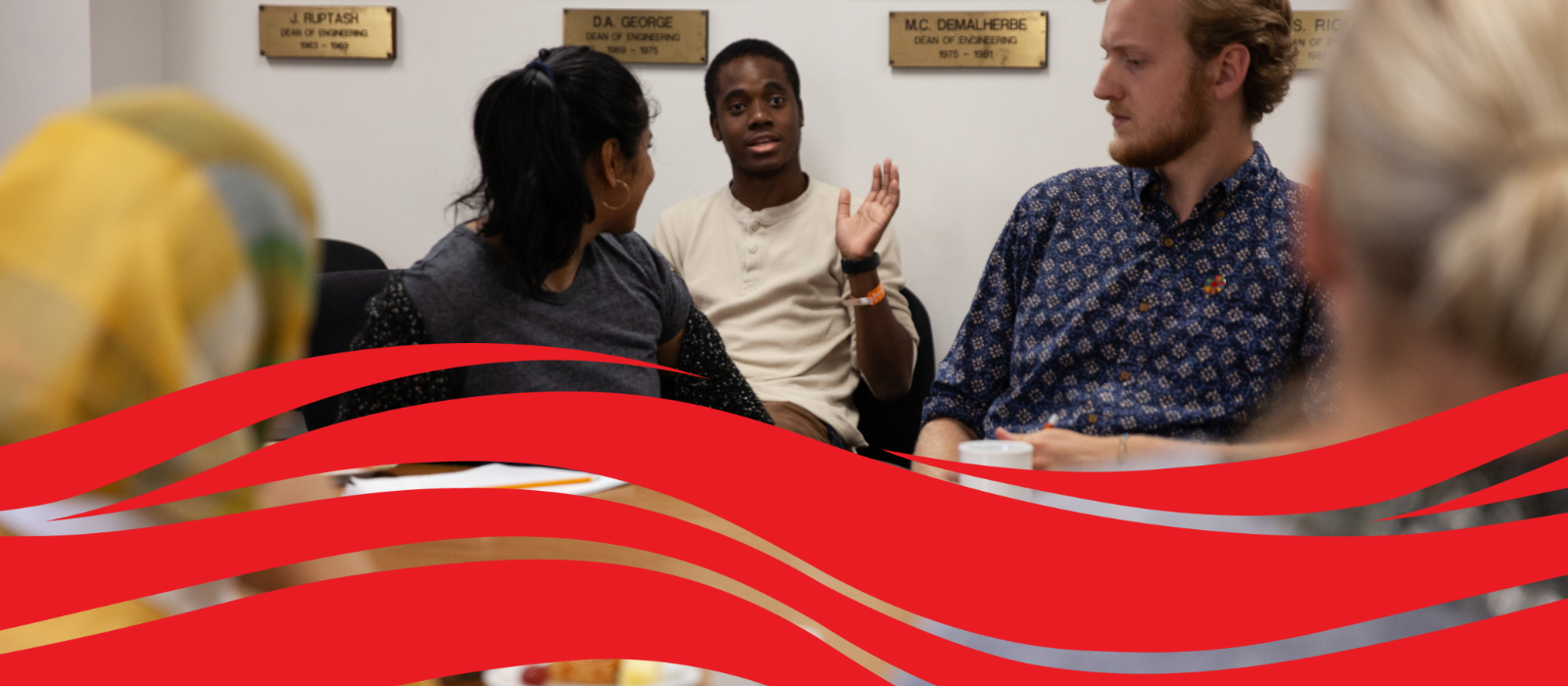- MA Degree Requirements
- Fields of Study
- Collaborative Specializations
- Second Language Requirement
- Coop
- PhD Fast-track Option
NPSIA’s MA program provides our students with a strong foundation in theory and practice across multiple focus areas of international affairs.
Our students receive rigorous training in international relations theory, policy analysis and formulation, research methods, economics and law. Our program is interdisciplinary, reflecting our philosophy that exposure to a range of disciplines enables our students to develop a better understanding of our complex global environment.
Through research assignments, case studies and simulations, mediation exercises, the preparation of policy papers, and project evaluation activities, our courses enable students to apply their academic training to contemporary policy issues.
Given that the ability to communicate is essential to international affairs, all our students must be able to function in a second major international language by the completion of their degree.
Through this comprehensive training, our students build the analytical and policy skills necessary to navigate an increasingly complex world and succeed in their chosen profession
MA Degree Requirements
NPSIA is a 5.0 credit MA program. Our program includes several mandatory courses in statistics, policy, law, and economics, as well as a mandatory second language requirement.
Students can complete the 5.0 credits in one of three ways: through Course Work, with a Research Essay, or with a Thesis. All three options will allow students to complete one or more co-op terms and/or complete an international exchange.
Please consult Carleton’s Graduate Studies Calendar for specific and up to date information on the program requirements.
To facilitate student planning, please consult our suggested program pathway. We recommend that students prioritize completing their mandatory program requirements early in their program, and that prioritization is reflected in our recommendations.
It is the responsibility of each student to ensure that they have completed NPSIA’s program requirements before applying to graduate. Please see this checklist for a summary of these requirements.
For further details, please speak to the MA Graduate Administrator.
Fields of Study
NPSIA offers eight (8) distinct Fields of study. These Fields reflect key subject areas of international affairs research and policy and provide students with in-depth knowledge of a particular subject area.
The fields include:
- Diplomacy and Foreign Policy;
- Conflict Analysis and Resolution;
- Health, Displacement and Humanitarian Policy;
- Intelligence and International Affairs;
- International Economic Policy
- International Organizations and Global Public Policy;
- International Development Policy; and,
- Security and Defence Policy.
Each Field has at least one designated economics course and a set of designated Field courses. To graduate with a Field Designation, students must take three courses (1.5 credits) associated with the Field. Please note that students do not need to secure a Field Designation to graduate from the program.
Students rank their preferences for Fields during the application process. Students are assigned a Field with their offer of admission. Students can request a change of Field after the start of the program. If space is available, students can transfer to another Field.
For details about each Field, including the designated economics course and the list of designated Field courses, please consult the Graduate Studies Calendar.
Collaborative Specializations
NPSIA Students have the opportunity to apply to Collaborative Specializations. These Specializations utilize various departments across Carleton to provide an interdisciplinary, in-depth knowledge of a given topic. Each Specialization requires a core foundational course that students take in the first year of the program, as well as other specific courses that provide students with knowledge and analytical skills relevant to the topic of the Specialization.
Students apply to Collaborative Specializations after they have been admitted to NPSIA and before their first term at NPSIA. Please note that enrollment in a Specialization is not part of your admissions offer. An email is sent to all incoming students inviting these applications to Specializations. Enrollment in Specializations is limited. Students will be admitted to these Specializations based on the strength of their admission file.
Second Language Requirement
All students must provide proof of second language proficiency prior to the completion of their program. Students with no prior knowledge in a second language are encouraged to contact the Language Advisor (Cristina Trevisan) during their first term to discuss their options for completing the language requirement. All students must begin their language training no later than the first semester of their second year in the program.
Language proficiency can be demonstrated by one of the following options:
For more information regarding the Modern Languages Unit at the School of Linguistics & Language Studies, please see: http://www.carleton.ca/slals/modern-languages/.
Coop
NPSIA, in conjunction with Carleton University’s Co-op Office, offers a co-op option to full-time students in the MA program.
NPSIA will host an information session for students in the Fall Term on the Co-op Program. An email will be sent out to students with application details and deadlines each term.
Co-op Eligibility
As per Carleton’s Graduate Studies Calendar, to be eligible for admission to co-op, NPSIA students must:
- have successfully completed by the end of their first term of academic study:
- INAF 5016[0.5] Statistical Analysis for International Affairs
- INAF 5017[0.25] International Policymaking in Canada: Structure and Process
- INAF 5018[0.25] Law and International Affairs
- 5 credit in INAF course of student’s choosing
- have successfully completed by the start-date of the first work term:
- 5 credit in INAF Economics course required for student’s field
- credit in INAF course(s) of student’s choosing
- be registered as a full-time student in each academic term prior to a work term; and,
- be eligible to work in Canada (for off-campus work terms).
NOTE: Students will be prevented from participating in the Co-op Program if they have not made satisfactory progress in their academic program.
Students are eligible to participate in the Coop Program for two work terms. (Note: MA/JD students are eligible to participate for one work term.)
A co-op work term may be undertaken during any of the co-op cycles (Fall, Winter, or Summer).
Students undertaking a co-op work term may request a temporary change to part-time status for the terms in which they are enrolled in the co-op program. This change in status will enable them to take one evening course (0.5 credit) and pay part-time fees. Coop students are not allowed to register in daytime classes.
Please note that coop students with funding packages will not receive funding while on part-time status. Their TA funding will resume with the next full-time term of enrolment.
To graduate with the Co-op Program designation on their diplomas, students must successfully complete two co-op work terms. These two work terms may be taken successively or can be separated by one or more study terms.
PhD Fast-track Option
The Norman Paterson School of International Affairs offers a fast-track option into the NPSIA PhD program.
Full-time students in the M.A. program who demonstrate outstanding academic performance and research potential may, with permission of the Ph.D. Associate Director, be admitted to the Ph.D. program after two terms of registration. Eligible students will be assessed on demonstrated research abilities and performance in the first term of studies.
Students considering this option will be advised, when selecting courses for their M.A. program, to choose those courses at the master’s level which are open to doctoral students and which may assist them in the doctoral comprehensive examinations.
Students interested in the fast-track option should meet with the PhD program supervisor during the fall of their first term in the program.
last updated July 2024




